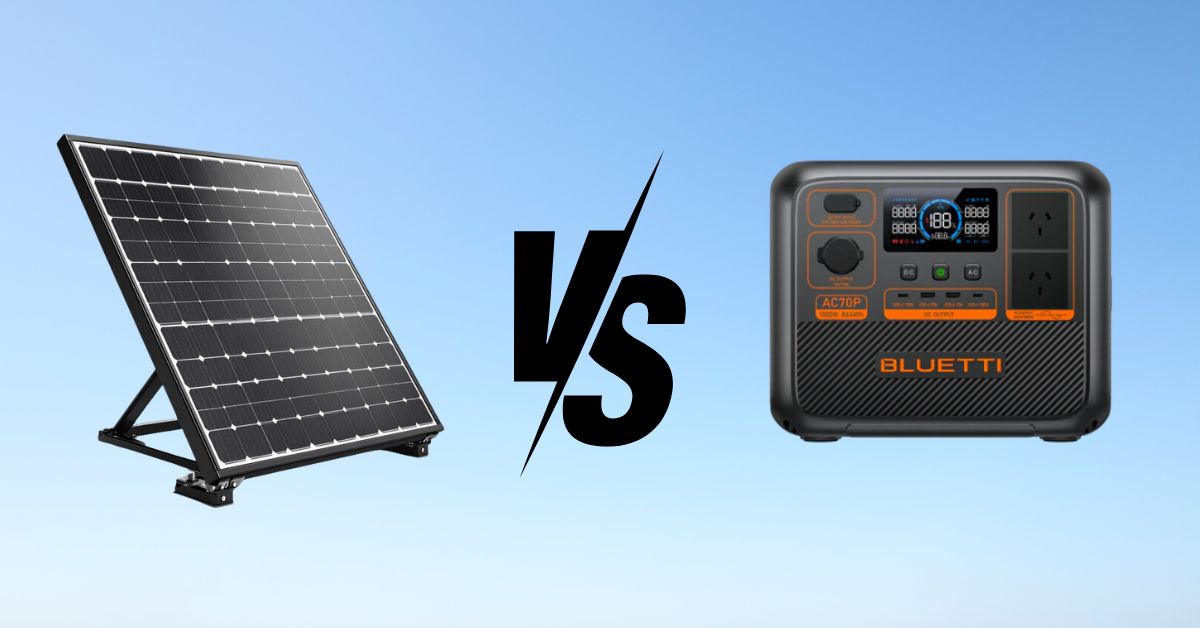
What is the Difference Between a Solar System and a Portable Power Station?
Choosing between a portable power station and a traditional solar system can be tricky, especially if you're new to off-grid energy solutions. Whether you're setting up for camping, emergencies, or everyday home use, it helps to understand the real differences between these two power options. So, what is the difference between a power station and a solar system? Let’s dive in.
Not sure which power station is right for you?
Take the quiz!
How a Portable Power Station Compares to a Solar System
Core Components of Each System
Solar Panels and Energy Conversion
Solar panels capture energy from the sun and convert it into DC electricity—this is the heart of any solar setup.
Inverters and Power Output
Most appliances run on AC power, so solar systems and portable power stations include inverters to make the power usable.
Battery Storage Options
Solar systems often have optional battery banks to store energy. Power stations always include internal batteries, ready to go.
Charge Controllers and Safety
Charge controllers manage the flow of energy, protecting your batteries from overcharging or damage—common in both systems.

Power and Portability: Which Does What Best?
Solar Systems for Permanent Installations
Best for homes or businesses, a fixed solar system delivers ongoing energy savings and large-scale output—but needs pro installation.
Portable Power Stations for Mobile Use
Ideal for camping, van life, and emergency power. They’re plug-and-play, lightweight, and versatile.
Use Cases and Ideal Scenarios
When to Choose Solar
If you want to lower your power bill and stay grid-independent, go solar—especially if you have the space and budget.
When to Choose a Portable Power Station
For travel, weekend projects, or reliable blackout backup, a power station delivers instant, silent power wherever you are.

What Is the Difference Between a Portable Power Station and a Solar System?
The key difference is this: a solar system is designed for long-term power production and is usually fixed in place. A portable power station stores electricity and is built for flexibility. Solar systems are best for homes, while power stations shine on the move or during emergencies.
Use both if you want the best of both worlds—permanent clean energy at home and portable convenience on the go.
Final Thoughts on Choosing a Portable Power Station or Solar System
Need consistent energy for your entire household? A solar system is your best long-term investment. But if you’re camping, traveling, or prepping for emergencies, a portable power station from a brand like EcoFlow or Bluetti is a game-changer. Choose the option—or combination—that best matches your lifestyle and energy needs.
You might also like:
- Can a Portable Power Station Run a Refrigerator?
- Can Portable Power Station Be Used as UPS?
- Can You Charge a Portable Power Station With a Solar Panel?
- Do You Need a Charge Controller for a Portable Power Station?
- How Long Will a Portable Power Station Run a Fan?
- Where Can I Buy a Portable Power Station?


